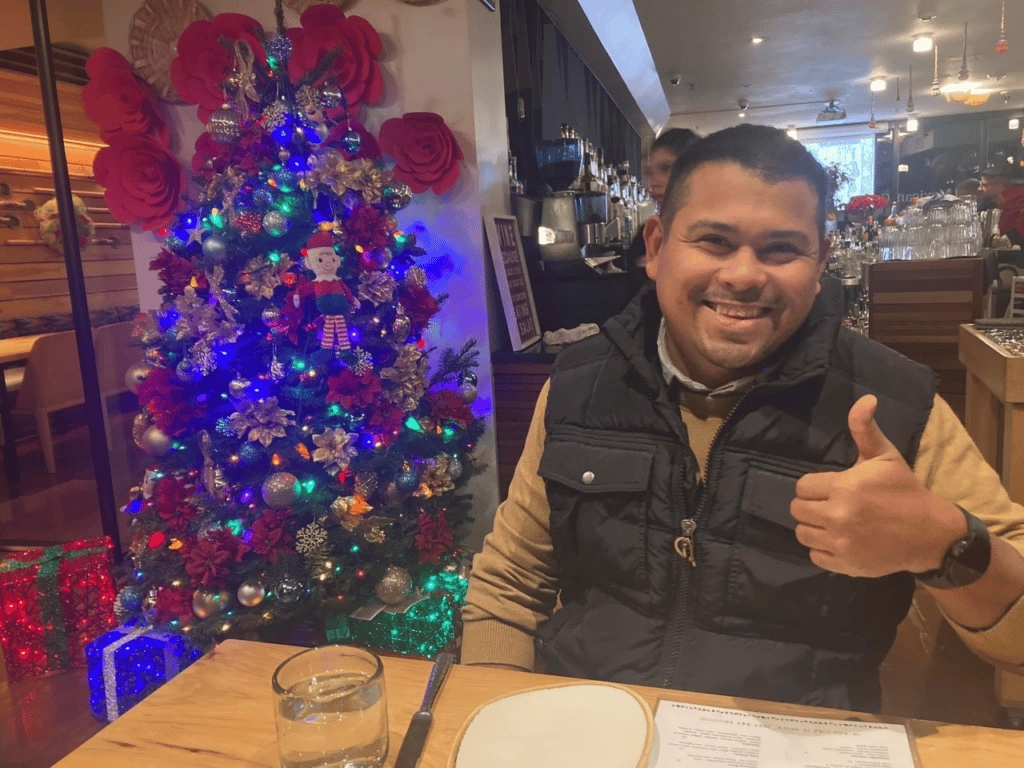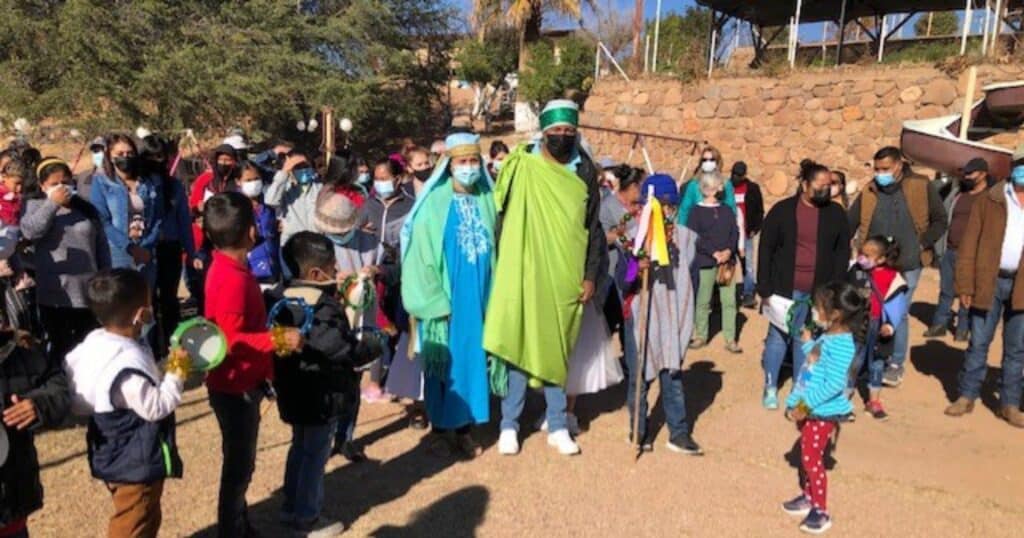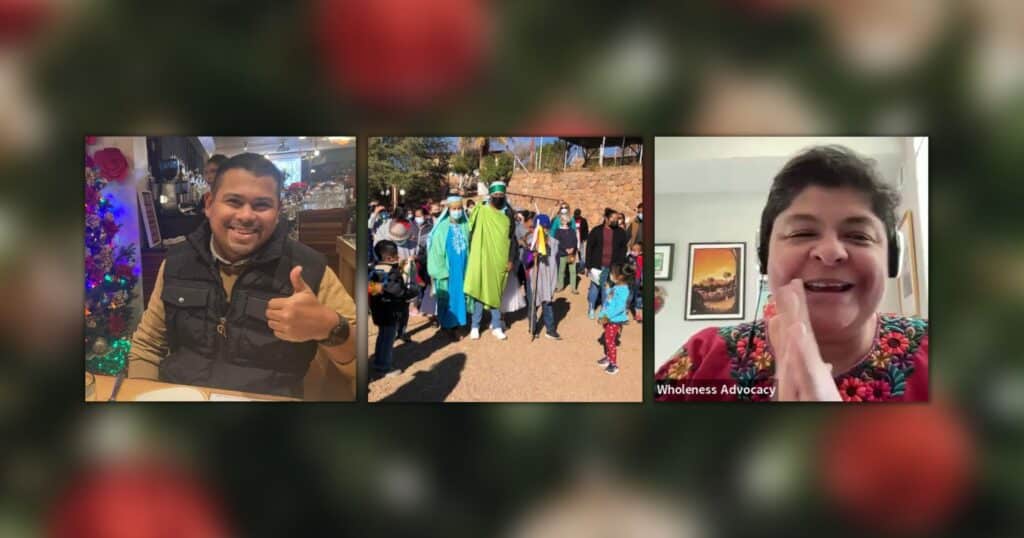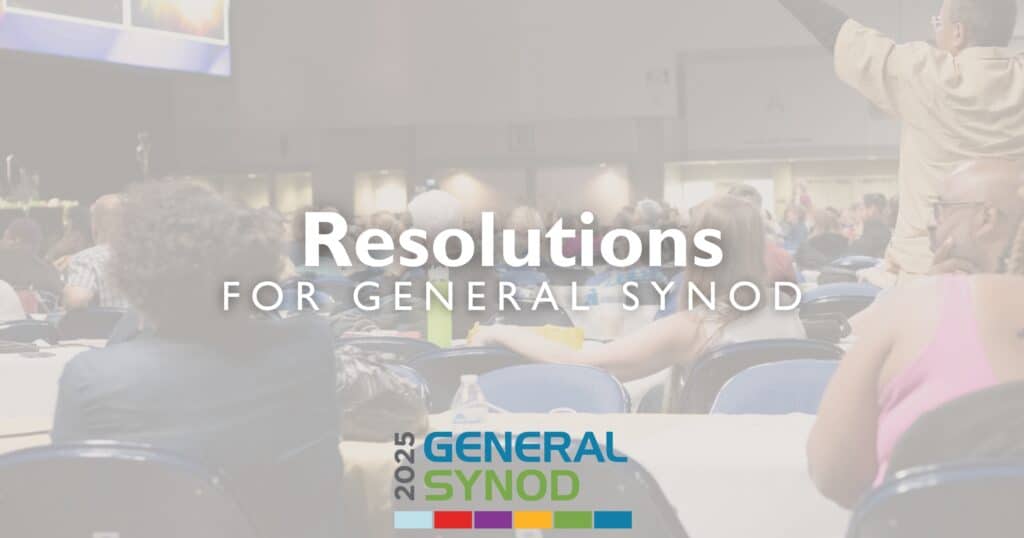In new year, UCC churches, leaders offer aid, welcome to migrants
As the calendar turns and U.S. policy changes, efforts across the country to welcome migrants remain strong throughout the United Church of Christ.
That particularly has been clear before, during and after this past holiday season.
Through Advent to Christmas to Epiphany and beyond, UCC activists and congregations have continued to practice this welcome. Creating safe havens for refugees and asylum seekers in the U.S. was a major part of the UCC’s story in 2022. From celebrating Las Posadas to offering sanctuary, UCC churches have been at the forefront of this issue.
As 2023 begins, this work does not appear to be slowing down at all. Advocates point to recent changes in President Biden’s immigration policies and problems that they see within them.
“As thousands of UCC congregations continue to advocate for welcoming policies — oftentimes inviting asylum seekers into their congregations and homes — this administration continues to take plays from the Trump era of anti-asylum policies,” said the Rev. Noel Andersen, who leads grassroots organizing for immigrants’ rights at the UCC and Church World Service. “As President Biden reflects on his trip to the U.S.-Mexico border, we pray he remembers the Christmas story of a refugee family. Instead of denying people their right to claim asylum, which violates the U.S. Refugee Act, we call on this administration to create a robust, humane reception system with adequate funding to shelter and provide the case management asylum seekers need.”
Celebrating asylum case win
For many asylum seekers, the legal process of finding refuge in the United States can be long and arduous. Even when asylum claims are successful, the process may be difficult and stressful.
One such hard-won victory recently was highlighted by the Rev. Deborah Lee, an ordained UCC minister who serves as the executive director of the Interfaith Movement for Human Integrity in California. In November, she wrote about Sergio Lopez, an asylum seeker from Nicaragua fleeing political violence.
“My experience has been very frustrating,” Lopez told Lee at that time. “The U.S. government tried so many ways to keep me out, but I kept trying because I didn’t have any other option.”

For several years Lopez awaited his fate, as determined by the U.S. justice system. During that time, he received support from Lee’s organization and other volunteers.
Finally, in December, Lopez got a wonderful early Christmas gift.
“(Sergio) received news that he won his asylum case after a four-year process,” Lee said in a Dec. 5 email to Lopez supporters. “… Thank you for all your prayers and accompaniment!”
A message from Lopez himself, translated from Spanish, was also included.
“I would like to thank everyone who is an important part of this achievement, all the people who in one way or another supported me to fulfill not only a dream but also a need to live in freedom without fear of being persecuted and be together with my wife and children,” he said. “… There were very difficult days, with weak hope, but there was always someone, who I consider angels, who helped me, see the light in the dark, who gave me shelter when it was cold and who were my support when I was about to fall.”
Celebrating Las Posadas
With many migrants of Latinx origin coming to the United States, cultural practices from their countries are becoming more widely shared. That’s true, too, in the UCC, as evidenced this Christmas by Las Posadas celebrations.
Encuentros Latinx, the UCC’s Latinx LGBTQ+ ministry, hosted its annual Posadas Navideñas virtually Dec. 15.
“Posadas Navideñas are essentially Christmas carols Latinx-style,” said the Rev. Rhina Ramos, who leads the Encuentros Latinx initiative. “Songs are sung about Jesus’ birth and the welcome by all the people of good faith.
“This was our third year doing this virtual event, and we always have an ecumenical service where pastors from other faith traditions participate, giving short messages of hope for the new year. But, essentially, we concentrate in bringing the music so dear to our hearts because it connects us with our culture and our language.”
A few videos from this year’s event are available on Ramos’s YouTube channel.
Meanwhile, UCC churches have noted the significance of Las Posadas celebrations in the midst of migration.
Just before Christmas, the Rev. Randy Mayer, senior minister of The Good Shepherd UCC in Sahuarita, Ariz., wrote about Las Posadas and the need to welcome migrants.
Mayer’s congregation has long provided food and water to migrants traversing the desert. In his commentary, he asked, “Is there any room at the inn?”
“Along the U.S.-Mexico border, Las Posadas become more than just a reenactment of an ancient story,” he wrote. “Las Posadas become alive with real people and real stories. There are thousands of people fleeing persecution, violence, poverty and climate change in Mexico and other countries in Latin America. They arrive at the border and literally knock on the door of the United States, pleading for safe shelter, desperately seeking asylum.”

Grants for refugee, migrant relief work
For churches looking to work directly with refugees, migrants and asylum seekers, new grants are available to help. The Rev. Irene Willis Hassan, UCC minister for refugee and migration services, highlighted many of them:
- Migrant Empowerment Match Grant: Career development funding, from $1,000 to $5,000, for individual migrants across a range of visa statuses. Church or migrant must match funds with Global H.O.P.E.
- Migrant Community Program Seed Grant: Awards ranging from $1,000 to $7,000 for churches creating community enrichment programs for migrants.
- Refugee Resettlement Booster Grant: Funding for churches to resettle a single or multiple families through a local refugee resettlement office, the U.S. Sponsor Circle Program or the Church World Service Remote Resettlement Program. Awards would range from $1,000 to $2,000 for a single sponsored family, and $3,000 to $7,000 for two or more families.
- Refugee and Migration Solidarity Grant: Awards of $1,000 to $3,000 intended for UCC churches and conferences to meet emergency mass care needs, such as sudden busses of migrants coming from the border or migrants suddenly landing on military bases.
- Asylum Accompaniment Booster Grant: Funding for churches hosting or resourcing asylum seekers. Awards would range from $1,000 to $2,000 for a single sponsored family, and $3,000 to $7,000 for two or more families.
- Ukrainian Sponsorship Seed Grant: Awards for churches to sponsor Ukrainian nationals, $2,000 per individual. Applicants must be registered as a sponsor with Church World Service or Welcome.US to be eligible.
For those interested in the grants, a workshop will be held Jan. 18 at 3 p.m. ET via Zoom.
Content on ucc.org is copyrighted by the National Setting of the United Church of Christ and may be only shared according to the guidelines outlined here.
Related News
Persona non Grata
The first time I heard the term persona non grata I was a child living in Jamaica, where I was...
Read More‘Natural Spirituali-teas’ vlog from UCC General Minister & President explores spirituality
It's time to spill the tea--the Rev. Karen Georgia Thompson, United Church of Christ General...
Read MoreResolutions for General Synod 35 span global contexts, holistic health, Conference change
The final proposed resolutions for General Synod 35 are now available for review. Eight...
Read More



